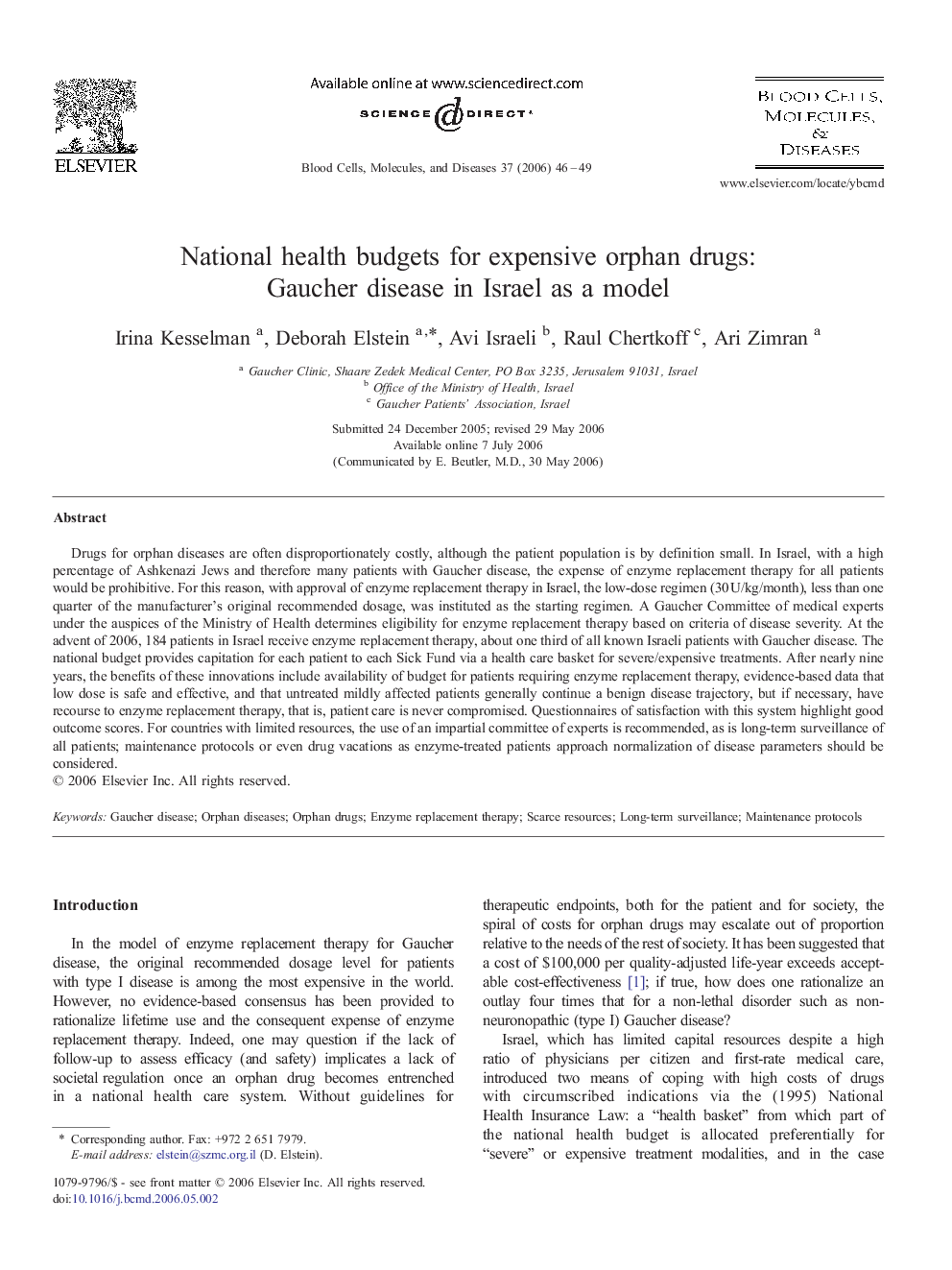| Article ID | Journal | Published Year | Pages | File Type |
|---|---|---|---|---|
| 2828129 | Blood Cells, Molecules, and Diseases | 2006 | 4 Pages |
Drugs for orphan diseases are often disproportionately costly, although the patient population is by definition small. In Israel, with a high percentage of Ashkenazi Jews and therefore many patients with Gaucher disease, the expense of enzyme replacement therapy for all patients would be prohibitive. For this reason, with approval of enzyme replacement therapy in Israel, the low-dose regimen (30 U/kg/month), less than one quarter of the manufacturer's original recommended dosage, was instituted as the starting regimen. A Gaucher Committee of medical experts under the auspices of the Ministry of Health determines eligibility for enzyme replacement therapy based on criteria of disease severity. At the advent of 2006, 184 patients in Israel receive enzyme replacement therapy, about one third of all known Israeli patients with Gaucher disease. The national budget provides capitation for each patient to each Sick Fund via a health care basket for severe/expensive treatments. After nearly nine years, the benefits of these innovations include availability of budget for patients requiring enzyme replacement therapy, evidence-based data that low dose is safe and effective, and that untreated mildly affected patients generally continue a benign disease trajectory, but if necessary, have recourse to enzyme replacement therapy, that is, patient care is never compromised. Questionnaires of satisfaction with this system highlight good outcome scores. For countries with limited resources, the use of an impartial committee of experts is recommended, as is long-term surveillance of all patients; maintenance protocols or even drug vacations as enzyme-treated patients approach normalization of disease parameters should be considered.
